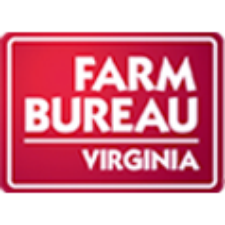
“Virginia has enjoyed a 20 percent increase in the number of year-round farmers’ markets since last year,” said Tony Banks, Virginia Farm Bureau Federation commodity marketing specialist. “This is an excellent opportunity to purchase local foods throughout the year. And it’s important for producers to be able to sell year-round. Some of them have processed their products to storable food items like jams, jellies and breads that are local and farm-fresh.
“Other producers have invested in high tunnels and greenhouses to provide fresh produce out of season for the year-round markets.”
The U.S. Department of Agriculture’s national farmers’ market directory lists 141 markets in Virginia that are open during the winter, up from 116 last year. The oldest of those markets is the Historic Roanoke City Market, which issued its first licenses to 25 “hucksters” in 1882. The first City of Roanoke Charter authorized a municipally-owned market in 1884, and the first City Market building was completed in 1886.
“We find that once the fruits and vegetables go out, we have a lot of vendors who come in and sell greens, Christmas trees and other items,” said Jaime Clark, marketing communications specialist with Downtown Roanoke Inc., which manages the market. “And we have a number of crafters and artisans who hand-make items they can sell year-round.” Meats, cheeses, baked goods and flowers are also sold. Every food vendor is a trusted supplier whose goods have been inspected by either Virginia Cooperative Extension or the Virginia Department of Agriculture and Consumer Services.
Forty vendors currently hold a contract to sell at the Roanoke market, and the market averages 10 vendors a day. Seventy-five percent of the vendors must sell either food or baked goods to keep the market in compliance with the USDA’s supplemental nutrition assistance program. The agriculture department has been encouraging program participants to shop at farmers’ markets to ensure they have fresh fruits and vegetables in their diets.
“We’re always working to get the word out on our EBT SNAP program, let folks know that we offer that on the market, and hopefully that will continue to grow,” Clark said.










